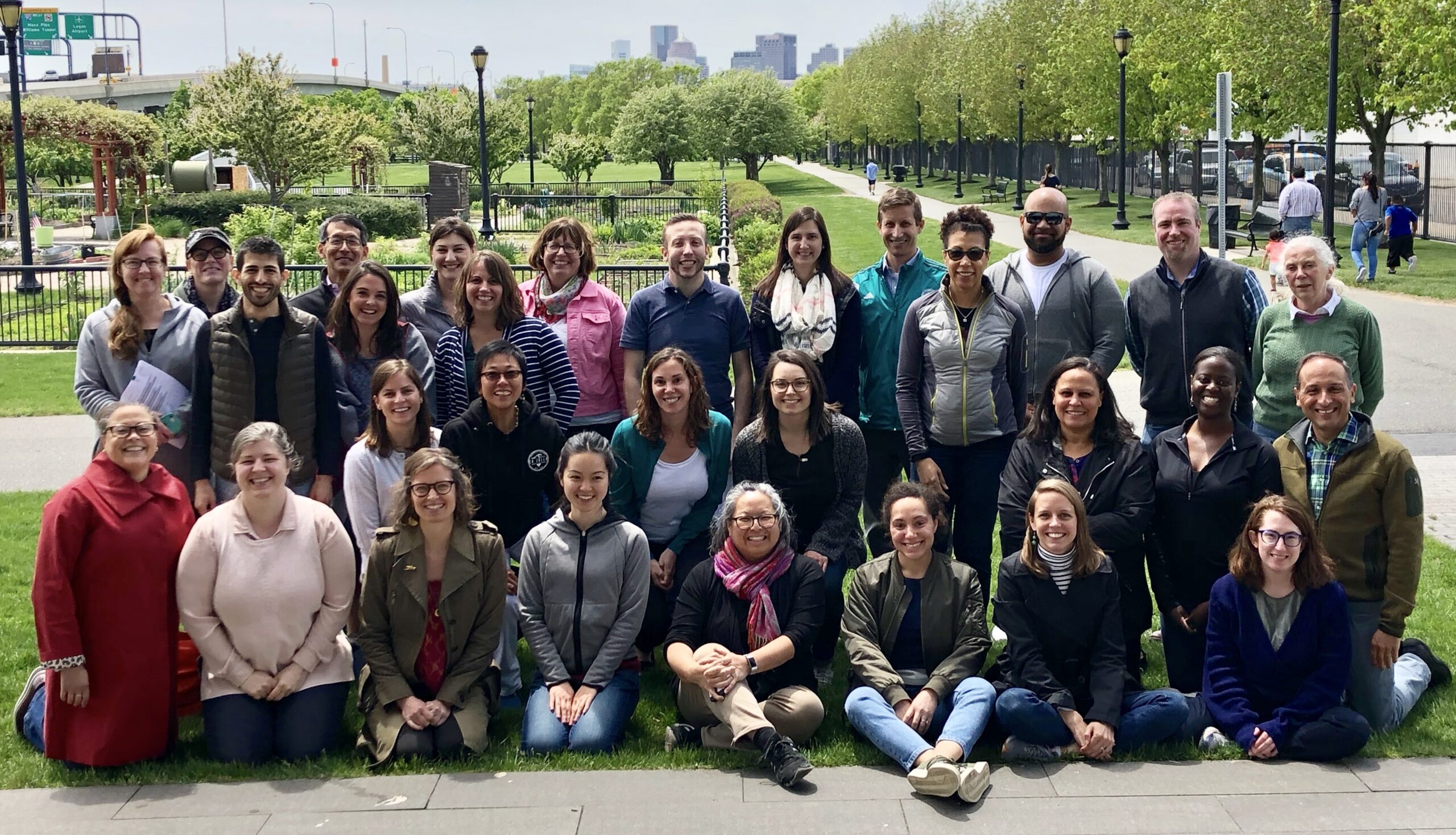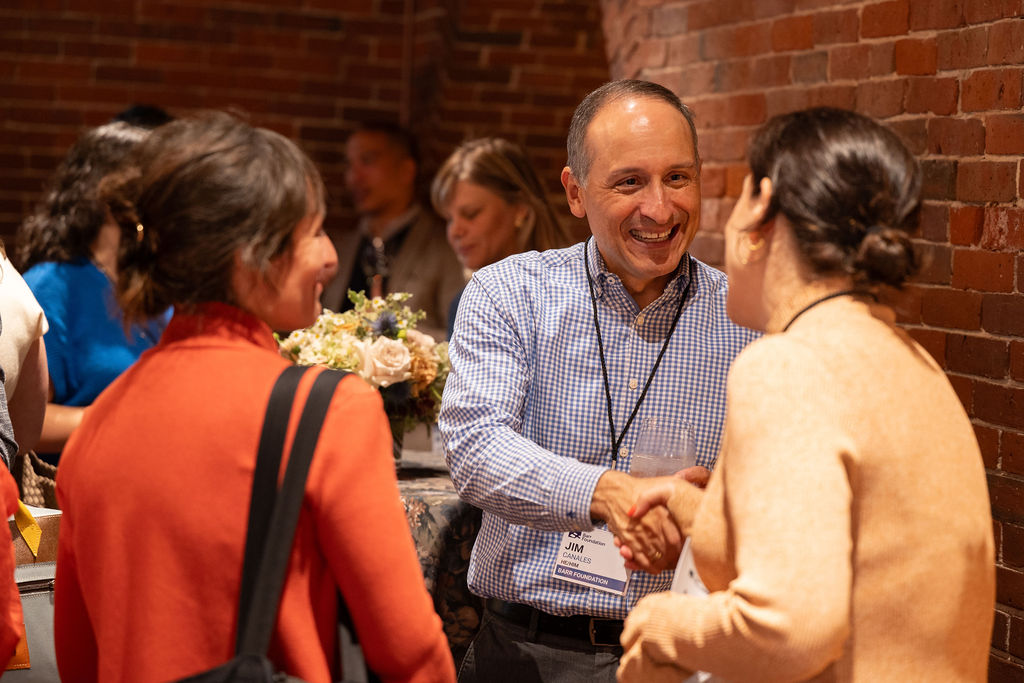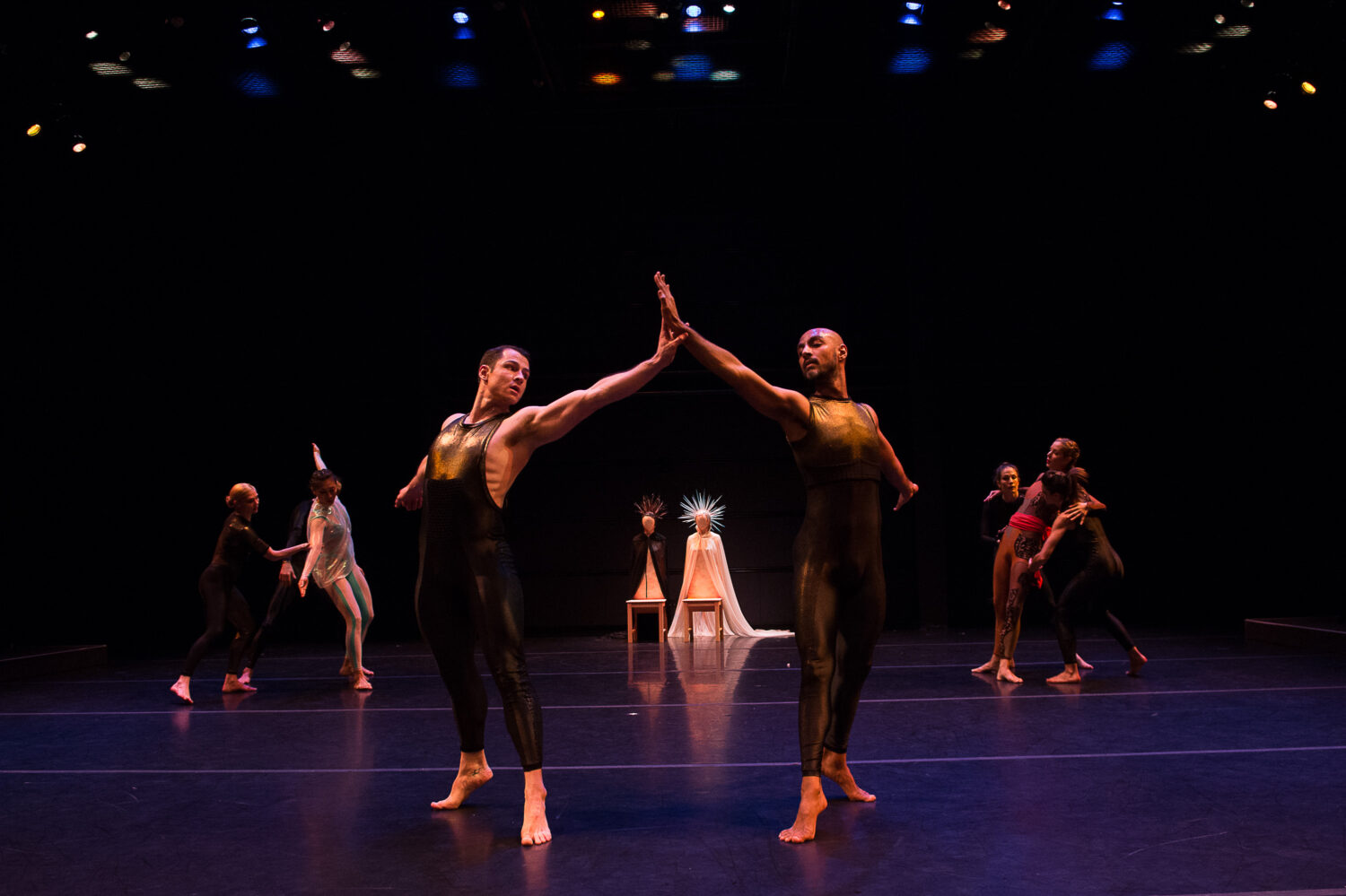Pictured above: Barr staff on retreat in East Boston, 2018.
For several years, the Barr Foundation has been on a journey to center equity in all we do, from our grantmaking to our organizational practices. We know that in order to fulfill our mission to invest in potential, our internal processes need to be aligned with our values of embracing diversity, equity, and inclusion, and intentionally designed to embed racial equity.
Through staff engagement, we identified Barr’s performance review process as one important area to explore and improve. We assembled an “action learning team,” representing staff from across the organization and, with a goal to “Build A Really Reliable, Consistent, And Transparent System” for performance evaluation at Barr we named ourselves the “Barr Cats.” We are three members of that nine-person team, offering a few reflections on what we did and what we learned, with the hope this can be helpful to others. We welcome your feedback and ideas.
Notice and question old habits.
When we got started, our group’s first impulse was to hire an outside expert to research and find a solution. Let’s find the best practice and put it in place, we thought! But, with guidance from one of our DEI consultants, Parisa Parsa, we realized this was a classic “minimization” tactic. As part of Barr’s equity journey, we all took the “Intercultural Developmental Inventory” (IDI) – an assessment for individuals and organizations to understand their own thinking and behaviors, and to guide learning and action towards becoming more diverse, inclusive, and equitable. A common behavior in the “minimization” stage of the IDI is a rush to the right answer, policy, or practice – without fully understanding or addressing underlying issues.
It felt uncomfortable to break with old habits and our usual urgency. Yet, we all came to see the importance of valuing the process as much as the final outcome – in order for that final outcome to be truly more equitable.
Listen and learn.
Putting our sense of urgency aside, rather than starting with a complete overhaul of our performance review system, we set out to listen and learn. We started by interviewing individual leaders at Barr who had shaped the performance review process over the years, in order to deeply understand the history and how we evolved to where we are today. We had conversations with other organizations as well as our own colleagues, actively seeking their feedback and ideas. One way we engaged staff was with a simple survey about our annual performance reviews. We asked just two questions:
- What do you think a successful performance review process should provide you with?
- What do you need to feel supported as you go through the performance review process?
There were seven clear themes that staff wanted to see better incorporated in performance reviews:
- Emphasizing dialogue
- Taking into account multiple perspectives
- Making sure the annual review is part of a more regular conversation
- Situating the individual’s goals in the broader context of the team and foundation’s work
- Identifying areas for improvement along with a plan for addressing them
- Acknowledging contributions and successes
- Collaborating with supervisor to set goals
Pilot and iterate.
Rather than trying to wrap all of these ideas into a perfect, polished, comprehensive plan (as we might have done in the past), we shared these themes with our colleagues and encouraged them to experiment during the next performance review process. We then surveyed staff again to ask if they had tried any new approaches and, if so, what they did and the impact it had on their experience. Their responses informed our ultimate proposal.
One example of a pilot was around the approach to compensation decisions. While individual compensation was not part of the Barr Cats’ scope of work, staff surveys revealed a clear desire for more transparency about the connection between performance review and compensation decisions. In response, our team asked Barr’s president and vice president to host a brown bag lunch, where they explained the approach to compensation decisions and addressed staff questions. We recorded the session and made it available to staff who weren’t able to join in person. One result of this dialogue is that the annual compensation letters staff receive now include the salary range associated with their position and an explanation for how to interpret the range.
Commit to action and accountability (and to more learning and improving).
As a final step for this phase of the Barr Cats work, we recommended action steps aligned to four key objectives:
- Create a clear, transparent process that supports the growth and learning of all staff by linking performance review with skill development and career advancement.
- Create a mechanism that enables ongoing monitoring and assessment of the process.
- Make recommendations on the information, processes, and support provided and available to staff related to their own career and personal journey within and external to Barr.
- Identify DEI practices and tools that can be used to inform the compensation decision process.
We shared these recommendations first with Barr’s leadership team and then with all of our colleagues. The collective work to put them into action is now underway. As one example, we’ve reframed our annual review as a “reflection” to emphasize learning, skill development, and professional growth, and have piloted a simple, straightforward framework to facilitate those conversations.
To support and advise on the work ahead, and on future opportunities to learn and refine our approach, the Barr Cats will call for volunteers among our colleagues to form a successor group (we suggested, but did not require, that they call themselves the “Barr Kittens”). Working closely with our Vice President for Administration, who oversees talent development, this group will track the ongoing implementation of the recommendations, gather feedback from staff, and refine it based on what they hear.
We feel proud of the results of our work – yet, in some ways even more proud and grateful for how we got there, and all we learned along the way. Working with a diverse, cross-functional team in such a collaborative way, informed at each step by voices and perspectives from across our organization was meaningful and rewarding for each of us.
We will continue to share as Barr explores other areas of internal culture and process toward our goal of being actively anti-racist. In the next few weeks, our colleagues on Barr’s second action learning team–the “BarrTenders”–will share reflections on their work to bring a DEI lens to our leave policies.






